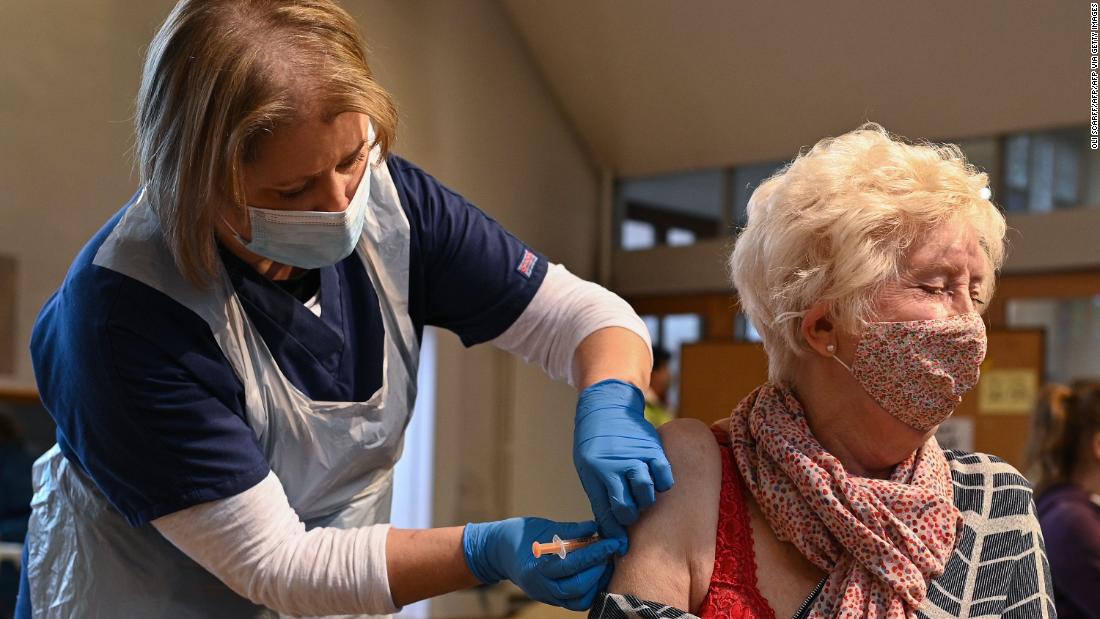But the decision was debated in the medical community, and the president of the British Medical Association (BMA) asked ministers to follow “best practices” and reduce the waiting time to six weeks for the vaccine developed by Pfizer and BioNTech.
Pfizer / BioNTech recommends that the second dose occurs 21 days after the first and said that there is no data to support a 12-week interval.
“What we are saying is that the UK should adopt this recommended practice based on international professional opinion,” BMA President Dr Chaand Nagpaul told the BBC on Saturday. The organization sent a letter to UK Medical Director Chris Whitty, warning against the delay.
“Most nations in the world are facing challenges similar to those in the United Kingdom, because they have a limited supply of vaccines and also because they want to protect their population to the fullest,” added Nagpaul. “No other nation has taken the UK approach.”
In a statement to CNN, a BMA spokesman said the letter informs Whitty of “the growing concern of the medical profession regarding the postponement of the second dose of the Pfizer-BioNTech vaccine, as the UK strategy is increasingly isolated from many other countries “.
The group told CNN that it is also concerned about the availability of the vaccine in the coming weeks, saying its members feel that “given the unpredictability of supplies, there may be no guarantee that second doses of the Pfizer vaccine will be available in 12 weeks.” Time.”
“The Association is asking the (Medical Director) to urgently review the UK’s current position on second doses after 12 weeks,” they said.
Public Health England medical director Yvonne Doyle defended the plan, telling the BBC on Saturday that it was necessary to control the virus.
“The more people who are protected against this virus, the fewer opportunities they will have to take advantage. Protecting more people is the right thing to do, ”she said.
The Pfizer / BioNTech vaccine has been in use in the UK since early December, when it became the first country in the world to approve it.
When Britain announced its plans, Pfizer said it had no data to demonstrate that just a single dose of its vaccine would provide protection against the disease after more than 21 days.
“The Pfizer and BioNTech phase 3 study for the Covid-19 vaccine was designed to evaluate the safety and efficacy of the vaccine after a 2-dose, 21-day schedule,” Pfizer said in a statement last month. “There is no data to show that protection after the first dose is maintained after 21 days.”
But medical directors in England, Scotland, Wales and Northern Ireland explained the measure in a letter to healthcare professionals after the vaccine was approved, saying it was based on a “balance of risks and benefits” and that the “great Most “of the initial protection came from the first jab.
The debate comes at a time when Covid-19 deaths are on the rise in the UK. Although new cases have been decreasing since Britain entered a third blockade this month, the country reported the highest number of daily deaths on Wednesday, with 1,820 deaths, giving a total of 97,517, according to John University Hopkins.
